UEFA 2020 Euro Championship – Day 9
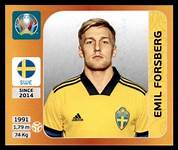 Group E: Sweden (0) 1 – 0 (0) Slovakia
Group E: Sweden (0) 1 – 0 (0) Slovakia
Goal-scorer: Forsberg (77′ pen)
Krestovsky Stadium, Saint Petersburg
Given there was so much at stake for both sides, it was incredible to witness an opening half that was so devoid of action. Slovakia seemed content to sit back and take a point whilst the Swedes offered little and looked unlikely to make any sort of breakthrough. As a result I ditched this game at the break. From the highlights in the second period at least both ‘keepers were made to earn their money with Sweden’s Olsen reacting smartly to keep out Kucka’s effort, whilst at the other end as Dubravka produced a superb save to keep out Ludwig Augustinsson’s header. The Slovakian ‘keeper was then called into action again saving at his post as Isak went onto a slaloming run through the Slovakia defence and fires goalward. The defining moment arrived thirteen minutes from time, Isak flicked a ball onto Quaison who touched it on as Dubravka came out and collided with the Swedish player. The referee pointed to the spot. Now I’ve looked at it a few times and I think Dubravka is unlucky as he has to come out and can’t get out of the way of the players as the ‘keeper goes for the ball. However, Forsberg stepped up and coolly placed his kick home. The final round of games will see Slovakia play Spain whilst Sweden will face Poland, with a clearer picture of who needs what emerging after today’s encounter between Spain and Poland.
 Group D: Croatia (0) 1 – 1 (1) Czech Republic
Group D: Croatia (0) 1 – 1 (1) Czech Republic
Goal-scorers: Croatia – Perisic (47′). Czech Republic – Schick (37’pen)
Hampden Park, Glasgow
I’ll be honest and a say I wasn’t fully paying attention to this one, with the England game a nervous distraction. Suffice to say, Croatia put in a better display than they did against England with Perisic’s leveller early in the second-half showing the quality of the Inter Milan striker. The Czech Republic had led through Schick’s third goal of the competition after he earned the Czech’s a penalty eight minutes before the break. With a bloody nose from the foul, he sent Livakovic the wrong way earning himself top spot in the race for leading scorer at this early stage. The Czechs have one foot in the last sixteen with England up next, whilst Croatia know that only a victory against the Scots will give them a chance of progress.
 Group D: England (0) 0 – 0 (0) Scotland
Group D: England (0) 0 – 0 (0) Scotland
Wembley Stadium, London
Why are so many people surprised at the result? I said yesterday a point was likely which was exactly as it turned out. Whilst the heavens opened in the Wembley sky, the goals dried up on the pitch. Scotland failed to score for their second group game and England also drew a blank as Harry Kane looking decidedly off the pace was withdrawn for a second successive match. It wasn’t as dour as it could have been with genuine chances on both sides. And what a different game it would have been of any of them had been taken. As ever it was a reality check for England, with their pre-tournament betting as one of the favourites, laughable in the extreme, as they are simply not even amongst the best five teams at this competition. Maybe I’m being too harsh, and this was simply a bad day at the office, with the pressure of the Auld Enemy just too much for the players on the night. Tuesday will be a different game entirely and it will be intriguing to see if there are any changes for the Czech Republic. For now the Scotland game should be confined to the history pages and its onto the next challenge.
Today signals the end of the second round of games, which starts with Group F and Hungary hosting France at the Puskas Arena in Budapest and is followed by Germany in Munich who welcome Portugal to the Allianz Arena. Proceedings conclude with Spain hosting Poland in Seville.
Hungary will hope that home advantage has some benefit after the late collapse against Portugal, but it will be no easy task against a French side brimming with confidence after their win over Germany. Can’t see anything other than Les Bleus taking three points and progress to the last sixteen. Could Germany really be heading out of the competition? They will be in real danger if Ronaldo and Co. take all three points in Munich. It’s not beyond the realms of possibility and would be a sad way for Germany coach Joachim Low to end his stint in charge. Finishing up the day is the Spain v Poland clash. And it could be a very interesting one. Spain all possession and no finish against Sweden, with just a point and Poland undone by Slovakia with no points going into this game. Surely if the Spanish have the same possession again they will surely score? Stranger things have happened. A draw between these two would make for an intriguing last round of games. Things are starting to get interesting!
 Group C: Ukraine (2) 2 – 1 (0) North Macedonia
Group C: Ukraine (2) 2 – 1 (0) North Macedonia Group B: Denmark (1) 1 – 2 (0) Belgium
Group B: Denmark (1) 1 – 2 (0) Belgium Group C: Netherlands (0) 0 – 0 (0) Austria
Group C: Netherlands (0) 0 – 0 (0) Austria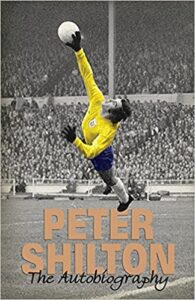 GK: Peter Shilton – The Autobiography/Saved – England’s record appearance maker, Peter Shilton won some 125 caps across a career spanning two decades. He represented England at five major tournaments, including Euro 1980 and 1988 and the 1982, 1986 and 1990 World Cup, and shares the record for most World Cup clean sheets (10) with Fabien Barthez. Peter Shilton’s domestic career took in some 11 teams, including Leicester City, Stoke City and Notts Forest. His forthcoming second autobiography, Saved, to be published in September, will reflect on his struggle with gambling.
GK: Peter Shilton – The Autobiography/Saved – England’s record appearance maker, Peter Shilton won some 125 caps across a career spanning two decades. He represented England at five major tournaments, including Euro 1980 and 1988 and the 1982, 1986 and 1990 World Cup, and shares the record for most World Cup clean sheets (10) with Fabien Barthez. Peter Shilton’s domestic career took in some 11 teams, including Leicester City, Stoke City and Notts Forest. His forthcoming second autobiography, Saved, to be published in September, will reflect on his struggle with gambling. Def: Rio Ferdinand – Rio: My Story/Rio: My Decade as a Red/#2Sides – My Autobiography/Thinking Out Loud – With no autobiography by arguably England’s best ever defender, Bobby Moore, Rio Ferdinand steps in as England’s second-most capped central defender (behind Bobby Moore), with some 81 caps and 3 goals. Featuring for England from 1997 through to 2011, Ferdinand was included in three World Cup squads, as well as Euro 2008. Domestically, he won the Premier League, League Cup, Community Shield, Champions League and Club World Cup. His most recent book was published in 2017.
Def: Rio Ferdinand – Rio: My Story/Rio: My Decade as a Red/#2Sides – My Autobiography/Thinking Out Loud – With no autobiography by arguably England’s best ever defender, Bobby Moore, Rio Ferdinand steps in as England’s second-most capped central defender (behind Bobby Moore), with some 81 caps and 3 goals. Featuring for England from 1997 through to 2011, Ferdinand was included in three World Cup squads, as well as Euro 2008. Domestically, he won the Premier League, League Cup, Community Shield, Champions League and Club World Cup. His most recent book was published in 2017.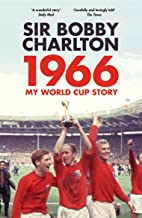 MF: Bobby Charlton – My Manchester United Years/My England Years/My Life in Football/1966: My World Cup Story – One of England’s 1966 heroes, Bobby Charlton won the Ballon d’Or in the same year and was also named FWA Footballer of the Year. He sits seventh on the list of appearances for England, with 106, and second on the list of top goal-scorers, having notched 49 in his career. A noted member of the Busby Babes, Charlton made over 600 appearances for Manchester United and had a career spanning nearly 25 years. Charlton’s clutch of autobiographies cover his impressive career, with the latest charting that epic World Cup triumph.
MF: Bobby Charlton – My Manchester United Years/My England Years/My Life in Football/1966: My World Cup Story – One of England’s 1966 heroes, Bobby Charlton won the Ballon d’Or in the same year and was also named FWA Footballer of the Year. He sits seventh on the list of appearances for England, with 106, and second on the list of top goal-scorers, having notched 49 in his career. A noted member of the Busby Babes, Charlton made over 600 appearances for Manchester United and had a career spanning nearly 25 years. Charlton’s clutch of autobiographies cover his impressive career, with the latest charting that epic World Cup triumph.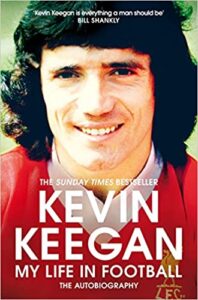 MF: Kevin Keegan – My Autobiography/My Life in Football – The only English footballer to have won the Ballon d’Or twice, Kevin Keegan captained England at Italy 1980. However, with England missing out on both the 1974 and 1978 World Cups, Keegan featured only in Spain 1982, but briefly due to injury. Across his career, Keegan won 63 caps and scored 21 goals, whilst domestic success came most notably at Liverpool. Following management spells with Newcastle and Fulham, Keegan stepped into the England role for one year. His second autobiography was published in 2018.
MF: Kevin Keegan – My Autobiography/My Life in Football – The only English footballer to have won the Ballon d’Or twice, Kevin Keegan captained England at Italy 1980. However, with England missing out on both the 1974 and 1978 World Cups, Keegan featured only in Spain 1982, but briefly due to injury. Across his career, Keegan won 63 caps and scored 21 goals, whilst domestic success came most notably at Liverpool. Following management spells with Newcastle and Fulham, Keegan stepped into the England role for one year. His second autobiography was published in 2018.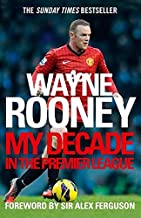 Striker: Wayne Rooney – The Way It Is/My Decade in the Premier League – Wayne Rooney holds the record as both England’s youngest ever goalscorer and the Three Lions’ top scorer, having bagged 53 goals in 120 appearances – whilst sitting second in the most caps chart. His England career spanned some 15 years, including appearances at Euro 2004, 2012 and 2016, and World Cup 2006, 2010 and 2014. Domestically, he holds the record as Manchester United’s top goalscorer, with 253 goals to his name, and is one of only two English players to have won the Premier League, FA Cup, Champions League, League Cup, Europa League and Club World Cup. His second autobiography was published in 2012.
Striker: Wayne Rooney – The Way It Is/My Decade in the Premier League – Wayne Rooney holds the record as both England’s youngest ever goalscorer and the Three Lions’ top scorer, having bagged 53 goals in 120 appearances – whilst sitting second in the most caps chart. His England career spanned some 15 years, including appearances at Euro 2004, 2012 and 2016, and World Cup 2006, 2010 and 2014. Domestically, he holds the record as Manchester United’s top goalscorer, with 253 goals to his name, and is one of only two English players to have won the Premier League, FA Cup, Champions League, League Cup, Europa League and Club World Cup. His second autobiography was published in 2012.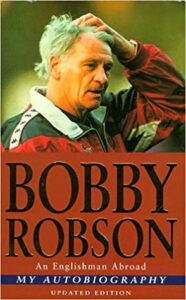 Manager: Bobby Robson – An Autobiography/Bobby Robson: An Englishman Abroad/Farewell but not Goodbye/My Kind of Toon – Whilst it was Alf Ramsey who led England to World Cup success, it was Bobby Robson who oversaw their best post-World Cup campaign, prior to Gareth Southgate’s arrival, leading the Three Lions to the semi-finals of Italia 90. He was at the helm for eight years, winning some 47 of his 95 games in charge, and led England at Mexico 1986 and Euro 1988. As a player, he represented England 20 times, scoring 4 goals, and had a successful managerial career at Ipswich, Barcelona and notably his hometown of Newcastle. As well as a number of autobiographies, Harry De Cosemo’s Black and White Knight was published earlier this year.
Manager: Bobby Robson – An Autobiography/Bobby Robson: An Englishman Abroad/Farewell but not Goodbye/My Kind of Toon – Whilst it was Alf Ramsey who led England to World Cup success, it was Bobby Robson who oversaw their best post-World Cup campaign, prior to Gareth Southgate’s arrival, leading the Three Lions to the semi-finals of Italia 90. He was at the helm for eight years, winning some 47 of his 95 games in charge, and led England at Mexico 1986 and Euro 1988. As a player, he represented England 20 times, scoring 4 goals, and had a successful managerial career at Ipswich, Barcelona and notably his hometown of Newcastle. As well as a number of autobiographies, Harry De Cosemo’s Black and White Knight was published earlier this year.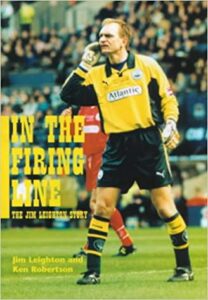 GK: Jim Leighton – In the Firing Line – With 91 caps to his name, Jim Leighton is the most capped Scottish goalkeeper, whilst sitting behind only Kenny Dalglish overall. His Scotland career spanned some 16 years from 1982 to 1998, which included two World Cups in 1986 and 1990. Whilst he missed out on Euro 92 and Euro 96, he returned as number one in the World Cup 1998 qualification and became the oldest player to play for Scotland aged 40 years and 78 days before David Weir surpassed this. His autobiography was published in 2000.
GK: Jim Leighton – In the Firing Line – With 91 caps to his name, Jim Leighton is the most capped Scottish goalkeeper, whilst sitting behind only Kenny Dalglish overall. His Scotland career spanned some 16 years from 1982 to 1998, which included two World Cups in 1986 and 1990. Whilst he missed out on Euro 92 and Euro 96, he returned as number one in the World Cup 1998 qualification and became the oldest player to play for Scotland aged 40 years and 78 days before David Weir surpassed this. His autobiography was published in 2000.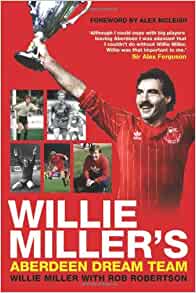 Def: Willie Miller – The Miller’s Tale/The Don/Willie Miller’s Aberdeen Dream Team – Described by Sir Alex Ferguson as ‘the best penalty box defender in the world’, Willie Miller featured for Scotland from 1975 to 1989, amassing 65 caps and one goal. He competed at the 1986 World Cup, but injury meant he missed out in 1990 and ultimately had to retire. Miller’s domestic career was spent entirely at Aberdeen (with a brief loan spell at Peterhead), where he notched up a club record 560 appearances, as well as 21 goals, in a 19-year career. He has three books to his name.
Def: Willie Miller – The Miller’s Tale/The Don/Willie Miller’s Aberdeen Dream Team – Described by Sir Alex Ferguson as ‘the best penalty box defender in the world’, Willie Miller featured for Scotland from 1975 to 1989, amassing 65 caps and one goal. He competed at the 1986 World Cup, but injury meant he missed out in 1990 and ultimately had to retire. Miller’s domestic career was spent entirely at Aberdeen (with a brief loan spell at Peterhead), where he notched up a club record 560 appearances, as well as 21 goals, in a 19-year career. He has three books to his name.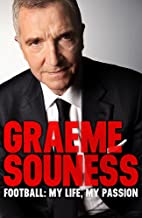 MF: Graeme Souness – No Half Measures/Graeme Souness: A Manager’s Diary/Souness: The Management Years/Graeme Souness – Football: My Life, My Passion – Across 12 years, Graeme Souness made 54 appearances for the Tartan Army, scoring four goals. In his time, he featured at three World Cups, including Argentina 1978, Spain 1982 and Mexico 1986. At club level, he made his name captaining a Liverpool side that dominated in the late 1970s/early 1980s before moving on to Sampdoria and later Rangers. A twenty-year managerial career ended at Newcastle in 2006 before Souness made the move into the media. His most recent autobiography was published in 2017.
MF: Graeme Souness – No Half Measures/Graeme Souness: A Manager’s Diary/Souness: The Management Years/Graeme Souness – Football: My Life, My Passion – Across 12 years, Graeme Souness made 54 appearances for the Tartan Army, scoring four goals. In his time, he featured at three World Cups, including Argentina 1978, Spain 1982 and Mexico 1986. At club level, he made his name captaining a Liverpool side that dominated in the late 1970s/early 1980s before moving on to Sampdoria and later Rangers. A twenty-year managerial career ended at Newcastle in 2006 before Souness made the move into the media. His most recent autobiography was published in 2017.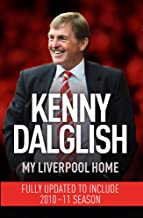 MF: Kenny Dalglish – My Autobiography/My Liverpool Home/Kenny Dalglish: Notes on a Season – As well as a legend of Celtic and Liverpool, Kenny Dalglish wrote his name into the Scottish history books, by being the most capped Scottish player, with 102 caps, and matching Denis Law as Scotland’s top goalscorer. During his career, he won the PFA Player’s Player of the Year and FWA Footballer of the Year twice, whilst being runner-up to Michel Platini for the Ballon d’Or in 1983. He was inducted to both the English and Scottish Football Halls of Fame. As well as two autobiographies, Dalglish’s Notes on a Season compiles his programmes notes from the 1989/90 season as Liverpool manager.
MF: Kenny Dalglish – My Autobiography/My Liverpool Home/Kenny Dalglish: Notes on a Season – As well as a legend of Celtic and Liverpool, Kenny Dalglish wrote his name into the Scottish history books, by being the most capped Scottish player, with 102 caps, and matching Denis Law as Scotland’s top goalscorer. During his career, he won the PFA Player’s Player of the Year and FWA Footballer of the Year twice, whilst being runner-up to Michel Platini for the Ballon d’Or in 1983. He was inducted to both the English and Scottish Football Halls of Fame. As well as two autobiographies, Dalglish’s Notes on a Season compiles his programmes notes from the 1989/90 season as Liverpool manager.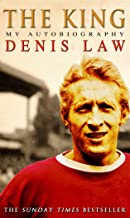 Striker: Denis Law – The King: My Autobiography/Denis Law: My Life in Football – Joint top goalscorer in Scotland’s history, Denis Law’s tally of 30 is made all the more impressive having scored them in some 55 games for his country. Missing out on the 1958 World Cup, Law would feature in only the 1974 World Cup but was still named Scotland’s Golden Player – the most outstanding player of the past 50 years – by the Scottish Football Association. He won the Ballon d’Or in 1964 and was included in the PFA Team of the Century. His most recent autobiography was released in 2011.
Striker: Denis Law – The King: My Autobiography/Denis Law: My Life in Football – Joint top goalscorer in Scotland’s history, Denis Law’s tally of 30 is made all the more impressive having scored them in some 55 games for his country. Missing out on the 1958 World Cup, Law would feature in only the 1974 World Cup but was still named Scotland’s Golden Player – the most outstanding player of the past 50 years – by the Scottish Football Association. He won the Ballon d’Or in 1964 and was included in the PFA Team of the Century. His most recent autobiography was released in 2011.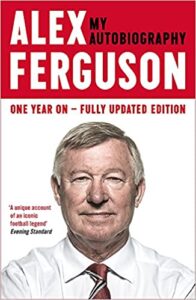 Manager: Alex Ferguson – Managing My Life/My Autobiography/Leading – With no autobiography available by the legendary Scottish manager Jock Stein, despite only a brief spell in charge of the national team, Sir Alex Ferguson is chosen as manager after his incredible success on the domestic front. With an unparalleled haul of team and individual awards, Ferguson stands head and shoulders above most other managers, Scottish or otherwise, in his achievements and legacy. His most recent book, Leading, published in 2015, gives an insight into his managerial philosophy.
Manager: Alex Ferguson – Managing My Life/My Autobiography/Leading – With no autobiography available by the legendary Scottish manager Jock Stein, despite only a brief spell in charge of the national team, Sir Alex Ferguson is chosen as manager after his incredible success on the domestic front. With an unparalleled haul of team and individual awards, Ferguson stands head and shoulders above most other managers, Scottish or otherwise, in his achievements and legacy. His most recent book, Leading, published in 2015, gives an insight into his managerial philosophy. Group D: Scotland (0) 0 – 2 (1) Czech Republic
Group D: Scotland (0) 0 – 2 (1) Czech Republic Group E: Poland (0) 1 – 2 (1) Slovakia
Group E: Poland (0) 1 – 2 (1) Slovakia Group E: Spain (0) 0 – 0 (0) Sweden
Group E: Spain (0) 0 – 0 (0) Sweden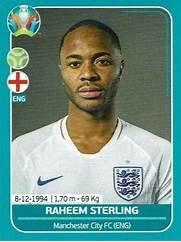 Group D: England (0) 1 – 0 (0) Croatia
Group D: England (0) 1 – 0 (0) Croatia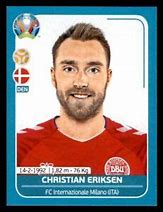 Eriksen impact: Firstly, having witnessed the horrific events in the Denmark v Finland game the previous day, I imagine twenty-four hours on, the football world’s thoughts were very much on Christian Eriksen and his recovery. The immediate and continued reaction showed once more the incredible and special unity possible in football. Regardless of nationality, club allegiance, interest, at moments like this, football unites in worry, hope and mostly support and it’s a poignant and powerful thing. Naturally, whilst the Danish and Finnish players were obviously those most closely affected, every team has players who will have crossed paths to varying degrees with Eriksen – past teammates, like Harry Kane and Jan Vertonghen, current teammates like Romelu Lukaku and Ivan Perisic, and myriad opposition players – and even for those who haven’t, I can’t imagine there was any player, fan or human being not affected. And even as the tournament continues, for the players involved what happened will surely play on their minds. Fortunately, a rapid and experienced medical response and the noble reaction of teammates, opposition and officials had a huge impact, but it also perhaps served as a reminder of the importance of first aid and emergency support at all levels of the game. Christian Eriksen will remain at the forefront of the thoughts and best wishes of everyone and although there is still a tournament being played, Eriksen’s recovery is the greatest victory that there can be.
Eriksen impact: Firstly, having witnessed the horrific events in the Denmark v Finland game the previous day, I imagine twenty-four hours on, the football world’s thoughts were very much on Christian Eriksen and his recovery. The immediate and continued reaction showed once more the incredible and special unity possible in football. Regardless of nationality, club allegiance, interest, at moments like this, football unites in worry, hope and mostly support and it’s a poignant and powerful thing. Naturally, whilst the Danish and Finnish players were obviously those most closely affected, every team has players who will have crossed paths to varying degrees with Eriksen – past teammates, like Harry Kane and Jan Vertonghen, current teammates like Romelu Lukaku and Ivan Perisic, and myriad opposition players – and even for those who haven’t, I can’t imagine there was any player, fan or human being not affected. And even as the tournament continues, for the players involved what happened will surely play on their minds. Fortunately, a rapid and experienced medical response and the noble reaction of teammates, opposition and officials had a huge impact, but it also perhaps served as a reminder of the importance of first aid and emergency support at all levels of the game. Christian Eriksen will remain at the forefront of the thoughts and best wishes of everyone and although there is still a tournament being played, Eriksen’s recovery is the greatest victory that there can be.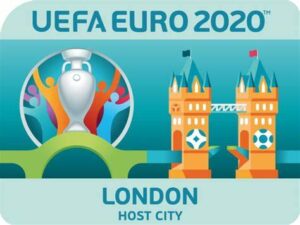 Home advantage?: As part of its 60th anniversary celebrations, UEFA opted to move away from its traditional approach of a single or two countries hosting the event to a fully pan-European tournament, which is a nice idea in principle, but in reality isn’t perhaps the most sensible, not least in these COVID times, but there we have it. Sadly, I’m not party to UEFA’s machinations so am unsure as to why it was 11 cities that were chosen, but each of the qualifying host nations are granted the opportunity to play at least two groups matches at home, whilst six nations, including Italy, Denmark, Netherlands, Spain, Germany and, crucially, England will play all three group games at home venues. Contrast this to Belgium who are flitting between St Petersburg and Copenhagen and Wales who find themselves manoeuvred between Azerbaijan and Rome, and you have to feel that there is a home advantage for England. More so than any other tournament, when teams would be based in a country and travel would be limited within that nation, or nations, travel and moving camps has to be more of a factor than ever. The group stages and knockout rounds will see the competition similarly spread across various destinations, but notably with the semi-finals and finals scheduled for Wembley, there is a real incentive and motivation for England to thrive. However, given that home nations have only won the Euros three times, perhaps we should give one of the other nations the title of home nation.
Home advantage?: As part of its 60th anniversary celebrations, UEFA opted to move away from its traditional approach of a single or two countries hosting the event to a fully pan-European tournament, which is a nice idea in principle, but in reality isn’t perhaps the most sensible, not least in these COVID times, but there we have it. Sadly, I’m not party to UEFA’s machinations so am unsure as to why it was 11 cities that were chosen, but each of the qualifying host nations are granted the opportunity to play at least two groups matches at home, whilst six nations, including Italy, Denmark, Netherlands, Spain, Germany and, crucially, England will play all three group games at home venues. Contrast this to Belgium who are flitting between St Petersburg and Copenhagen and Wales who find themselves manoeuvred between Azerbaijan and Rome, and you have to feel that there is a home advantage for England. More so than any other tournament, when teams would be based in a country and travel would be limited within that nation, or nations, travel and moving camps has to be more of a factor than ever. The group stages and knockout rounds will see the competition similarly spread across various destinations, but notably with the semi-finals and finals scheduled for Wembley, there is a real incentive and motivation for England to thrive. However, given that home nations have only won the Euros three times, perhaps we should give one of the other nations the title of home nation. Kalvin Phillips: There was much talk going into the tournament around attacking players – Should Sancho be included? Would Grealish be fit? How on earth can we fit in all of these attacking options? – and then when the squad announcement was made attention turned to Harry Maguire and the four right-backs, whilst one man went largely under the radar – Kalvin Phillips. After an excellent couple of seasons with Leeds, Phillips got a much-deserved first England call-up in August last year and hasn’t looked back. Indeed, perhaps most notably, there was never any question of him making Gareth Southgate’s final 26 – his name never came up for discussion. But as the tournament neared and a lot of focus turned to Jordan Henderson’s fitness and possible return, the question of midfield partnerships suddenly arose. Phillips found himself named alongside Rice, but with Jordan Henderson continuing to build towards his return, the spotlight was on, and Phillips didn’t disappoint, putting in a superb performance, both breaking up play and pushing forward, crucially for England’s goal. He took his chance with both hands and surely deserves his spot against Scotland. Tyrone Mings who was similarly under the microscope in what has been deemed a problem area for England with the injury to Harry Maguire put in a solid performance, whilst Foden was, as ever, a shining light. Had Euro 2020 not been delayed, Phillips and Foden, neither of whom made their debuts until August 2020, and Mings, who was still breaking through, may not have featured. What a difference twelve months makes!
Kalvin Phillips: There was much talk going into the tournament around attacking players – Should Sancho be included? Would Grealish be fit? How on earth can we fit in all of these attacking options? – and then when the squad announcement was made attention turned to Harry Maguire and the four right-backs, whilst one man went largely under the radar – Kalvin Phillips. After an excellent couple of seasons with Leeds, Phillips got a much-deserved first England call-up in August last year and hasn’t looked back. Indeed, perhaps most notably, there was never any question of him making Gareth Southgate’s final 26 – his name never came up for discussion. But as the tournament neared and a lot of focus turned to Jordan Henderson’s fitness and possible return, the question of midfield partnerships suddenly arose. Phillips found himself named alongside Rice, but with Jordan Henderson continuing to build towards his return, the spotlight was on, and Phillips didn’t disappoint, putting in a superb performance, both breaking up play and pushing forward, crucially for England’s goal. He took his chance with both hands and surely deserves his spot against Scotland. Tyrone Mings who was similarly under the microscope in what has been deemed a problem area for England with the injury to Harry Maguire put in a solid performance, whilst Foden was, as ever, a shining light. Had Euro 2020 not been delayed, Phillips and Foden, neither of whom made their debuts until August 2020, and Mings, who was still breaking through, may not have featured. What a difference twelve months makes! Hey, Jude: Can you remember what you were doing at 17? Learning to drive, perhaps; maybe taking exams, or even something a little less virtuous. Whatever it was, it wouldn’t have been representing your country in the Euros. In fact, only one person in history can claim that achievement in the men’s Euros – Jude Bellingham. When he was brought on as a sub against Croatia, at the age of 17 years and 349 days, Bellingham broke the previous record held by Jetro Willems of the Netherlands, who was 18 years and 71 days when he featured in Euro 2012. Bellingham is also some 23 years younger than the oldest ever player at the Euros – Gabor Kiraly of Hungary, who was 40 years and 86 days – and 22 years younger than the oldest ever outfield player – Germany’s Lothar Matthaus, who was 39 years and 91 days. The teenager joins an illustrious group of players who hold the honour of being the youngest players for their nations at the Euros, including Ivan Rakitic (Croatia), Tomas Rosicky (Czech Republic), Michael Laudrup (Denmark), Lukas Podolski (Germany) and Paolo Mancini (Italy) to name a few. In terms of the youngest goalscorer at the Euros, Johan Vonlanthen of Switzerland currently holds that title, aged 18 years and 141 days, so Bellingham could feasibly take that one too. Oh, and one other record of note, the youngest player to feature in a Euros final was Renato Sanches of Portugal, aged 18 years and 327 days. Jude Bellingham only turns 18 twelve days before the final, just saying…
Hey, Jude: Can you remember what you were doing at 17? Learning to drive, perhaps; maybe taking exams, or even something a little less virtuous. Whatever it was, it wouldn’t have been representing your country in the Euros. In fact, only one person in history can claim that achievement in the men’s Euros – Jude Bellingham. When he was brought on as a sub against Croatia, at the age of 17 years and 349 days, Bellingham broke the previous record held by Jetro Willems of the Netherlands, who was 18 years and 71 days when he featured in Euro 2012. Bellingham is also some 23 years younger than the oldest ever player at the Euros – Gabor Kiraly of Hungary, who was 40 years and 86 days – and 22 years younger than the oldest ever outfield player – Germany’s Lothar Matthaus, who was 39 years and 91 days. The teenager joins an illustrious group of players who hold the honour of being the youngest players for their nations at the Euros, including Ivan Rakitic (Croatia), Tomas Rosicky (Czech Republic), Michael Laudrup (Denmark), Lukas Podolski (Germany) and Paolo Mancini (Italy) to name a few. In terms of the youngest goalscorer at the Euros, Johan Vonlanthen of Switzerland currently holds that title, aged 18 years and 141 days, so Bellingham could feasibly take that one too. Oh, and one other record of note, the youngest player to feature in a Euros final was Renato Sanches of Portugal, aged 18 years and 327 days. Jude Bellingham only turns 18 twelve days before the final, just saying…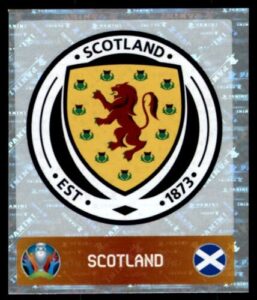 Tough test: England’s 1-0 victory over Croatia ensured England’s best ever start to a Euros; indeed, they had never won their first game at the tournament before. Whilst there were a lot of positives to take from the match, there is, naturally, room for improvement. It is difficult to be at your best in the first game, nor, quite honestly, would you want to be, hoping to build into the competition, so a victory and three points was the most important thing, and against a Croatia side who have been known to cause the odd England upset, it was a solid enough start, but the next game against Scotland may be an even bigger challenge. It is, after all, the oldest rivalry in football, dating back to 1872, and has seen some 113 matches, of which England hold a slight advantage, including in recent years, although the most recent result was a 2-2 draw. Whilst England’s biggest victory was 9-3 in 1961 and Scotland’s 7-2 in 1878, which would make for entertaining affairs, I suspect it will be a much-closer and harder-fought contest when the two sides meet on Friday. England will be looking to build momentum, whilst Scotland will be wanting to make the most of their first major tournament in 23 years. With the likes of Andy Robertson, Scott McTominay and John McGinn, Scotland will be familiar but formidable opponents and surely buoyed by a match against England. The Three Lions will face a tough test and will certainly need to raise their game to keep their 100% start in the tournament.
Tough test: England’s 1-0 victory over Croatia ensured England’s best ever start to a Euros; indeed, they had never won their first game at the tournament before. Whilst there were a lot of positives to take from the match, there is, naturally, room for improvement. It is difficult to be at your best in the first game, nor, quite honestly, would you want to be, hoping to build into the competition, so a victory and three points was the most important thing, and against a Croatia side who have been known to cause the odd England upset, it was a solid enough start, but the next game against Scotland may be an even bigger challenge. It is, after all, the oldest rivalry in football, dating back to 1872, and has seen some 113 matches, of which England hold a slight advantage, including in recent years, although the most recent result was a 2-2 draw. Whilst England’s biggest victory was 9-3 in 1961 and Scotland’s 7-2 in 1878, which would make for entertaining affairs, I suspect it will be a much-closer and harder-fought contest when the two sides meet on Friday. England will be looking to build momentum, whilst Scotland will be wanting to make the most of their first major tournament in 23 years. With the likes of Andy Robertson, Scott McTominay and John McGinn, Scotland will be familiar but formidable opponents and surely buoyed by a match against England. The Three Lions will face a tough test and will certainly need to raise their game to keep their 100% start in the tournament.
 The first question that many people will ask in first picking up this book is, ‘who is Andrew Watson?’ Author Llew Walker addresses this in the Preface to this well researched and diverse read, with the following:
The first question that many people will ask in first picking up this book is, ‘who is Andrew Watson?’ Author Llew Walker addresses this in the Preface to this well researched and diverse read, with the following:
